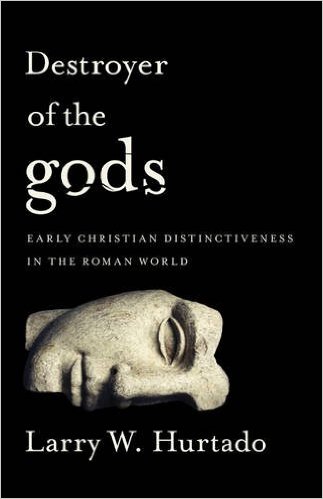
A recent blog post by British NT scholar Ian Paul laments the lack of men in Western churches. While one has to speak in quite general terms on this topic and thus speak cautiously (both Paul and myself, for instance, do not fit the general trend, as we have academic theological training and are deeply religious, as are many other Christian men), it is still necessary to see that, at least in the Western Church since the Reformation period, male participation has consistently lagged behind that of women. Here is Paul’s opening statement:
I am feeling very nervous about posting on this particular gender-related issue. I know I will get lots of flak from all corners for making gross generalisations and such. But here’s the thing: a religious movement, started by a man, with a predominance of male leaders from the beginning, and in which some groups are struggling very hard to let go of male hegemony, has, for at least 600 years (in the West at least) been dominated as a movement by the presence of women. I’m not suggesting that this is a Bad Thing, but, by any measure, it is a Big Thing. For a start, it is a real paradox. For another, it is just very odd in the context of thinking about religious movements. I don’t think any other global religious movement exhibits the same phenomenon. Hinduism, Sikhism, Buddhism, Islam are all controlled by men and appeal to men. Not so with Christian faith. So anyone interested or involved in Christian ministry, in whatever form, needs to consider it.
Dr. Paul speculates on several factors that he thinks might contribute to such a deficit. While several of these potential factors are interesting—especially his thought that Christianity offered (and offers) a particular appeal to the powerless and oppressed in the ancient world, particularly women—I think Paul is largely looking in the wrong places for the root cause of the Church’s “male problem.” While a detailed sociological and historical study of the reasons for this would be fascinating, I’d wager that we can at least makes some educated speculations at a few of the deeper reasons here. A big one, and the focus of this post, is likely that the character of Christian ethical behavior is antithetical to many of the culturally-ascribed forms of traditional male behavior. In the Western world, men are often encouraged (usually in unstated and implicit cultural forms) to behave in a far more aggressive manner than women. This applies in nearly all spheres of life, from politics, to sports, and especially to sex. Despite the politically-charged overtones that often get associated with the term, there really are pervasive forms of “toxic masculinity” that get inculcated in men from the time they are boys and that manifests in its worst forms in the litany of sexual abuse, assault, and rape cases that are currently in the public spotlight. Contrast this type of culturally-ascribed, aggressive, and domination-based behavior with the Christ-like ethic of turning the other cheek, seeking to serve the other rather than be served, and (as we will see) ordering one’s sexuality toward chastity in both single and married life. In many ways, the ethics of the New Testament are a domineering, overly-aggressive, and sexually self-gratifying man’s worst nightmare.
Of course such a notion seems strange to us. Isn’t the NT (and the Bible as a whole) hopelessly patriarchal? Isn’t it one of the biggest contributors to the current epidemic of toxic masculinity and sexual aggression, with its statements about wives being required to “submit” to their husbands and the like? Well, on one, very surface level reading, you can argue this. Many fundamentalist biblical literalists, who read the Bible divorced from its historical and cultural context, have wielded the NT household codes as weapons against women. However, as I’ll try to show (at least in the realm of sexual ethics), this use of the Bible is actually a thoroughly sub-Christian reading of such admonitions. In fact, properly situated within its socio-historical context, the New Testament has some of the most liberating theological claims for women, slaves, and children; and some of the most chastening and ethically-arduous claims for men who, in the Greco-Roman world, had free reign regarding their patriarchal and sexual proclivities. In contrast to some of Dr. Paul’s speculations, I would contend that Christianity has had a “male problem” from the very start, precisely because it dismantled the culturally-ascribed and indeed “toxic” masculinity of its day.
The place to begin here is with out earliest Christian writer: the Apostle Paul. While Paul is often (erroneously) viewed as a sort of proto-misogynist and patriarchal champion, this is far from the truth when one actually begins to delve into the historical context into which the Apostle wrote. When it comes to relations between men and women, Paul is actually a bit of a radical in his ancient context. Not only does Paul accord a level dignity and worth to women equal to that of men (a rarity in the ancient world), in the early church he also effectively abolishes one of the most pervasive sexual double standards in the ancient Greco-Roman world. We can see this in play in several of the Pauline epistles, but we can start with arguably the earliest of them: 1 Thessalonians.
The larger context of 1 Thessalonians revolves around Paul’s admonition to the church in Thessalonica to persevere in the face of persecution, based on the future hope they have in the resurrected Jesus. It is on this basis that Paul provides ethical exhortations for the young church. Part of enduring in the face of persecution is living a transformed, cruciform life. A large part of this transformed ethical life involves sexual ethics. This realm of ethical behavior is important not only because it impacts how people relate to each other, but in the ancient world it was also directly connected to the spiritual realm of life. Thus, how one behaves sexually in a Christian community is directly related to how one views the spiritual nature of the world. Accordingly, Paul says the following in 1 Thessalonians 4:2-6 (NRSV):
For you know what instructions we gave you through the Lord Jesus. 3 For this is the will of God, your sanctification: that you abstain from fornication; 4 that each one of you know how to control your own body in holiness and honor, 5 not with lustful passion, like the Gentiles who do not know God; 6 that no one wrong or exploit a brother or sister in this matter, because the Lord is an avenger in all these things, just as we have already told you beforehand and solemnly warned you.
The key thing to take away from this section is the command to “abstain from fornication.” The Greek word used is porneia, and it functions as a sort of umbrella term for a wide variety of sexually immoral behaviors. However, Paul narrows in a bit when he says that, “each one of you know how to control your own body in holiness and honor, not with lustful passion, like the Gentiles who do not know God; that no one wrong or exploit a brother or sister in this matter…” While porneia in general is to be avoided by all Christians, Paul places a special emphasis on the act of adultery here. This is the language of “do not wrong or exploit a brother [or sister; in the Greek it just says ‘brother,’ adelphos, but the thought is obviously applicable to women] in this matter” especially as the Gentiles were known for doing.
While adultery with another man’s wife was frowned upon in the Hellenistic world (and technically punishable under Roman law), it was often unpunished and fairly common. If one was a man and not a slave, then you could be reasonably sure that you would face little official punishment (of course a jilted husband who saw his honor besmirched and took matters into his own hands would be another story). If one was a woman however, things were very different. Indeed, a severe double-standard existed wherein men could freely engage in sexual behavior with slaves, concubines, prostitutes, and—if careful enough—other men’s wives with no backlash. A woman caught sleeping with someone other than her husband, however, was subject to severe reprisal. As Craig Keener notes on the matter:
Adultery, or “wife stealing,” as it was often considered, was punishable by banishment under Roman law; in some circumstances, a couple caught in the act could be killed on the spot. Adultery seems to have been common and usually unpunished, however; but a husband who learned that his wife was committing adultery was required by law to divorce her or himself be prosecuted on the charge of lenocinium—“pimping.”
Larry Hurtado, in examining just how strange Christian beliefs and ethics were in the ancient Greco-Roman world, captures the extreme sexual double standard:
In the larger Roman-era cultural setting of this letter [1 Thessalonians], the double standard in sexual practice was fully in force. Wives were generally held to one standard of behavior, strict marital chastity, and husbands to quite another. Men, husbands included, were allowed considerably more freedom to have sex with other women, particularly women deemed not to possess status and honor. So, although sex with the wives of other men or with freeborn virgins was not approved, other kinds of sexual activities were openly tolerated, and even encouraged. These included sex with courtesans and prostitutes and also sex with boys, typically slave boys. An oft-cited statement of the fourth century BC Greek orator Demosthenes, but indicative of later attitudes as well, is illustrative of the sexual latitude allowed to men: “We [men!] have heterai [concubines, courtesans] for pleasure, female slaves for our daily care [a sexual euphemism] and wives to give us legitimate children and to be guardians of our households.” [Demosthenes, Against Neaera, 3.122]. Quite simply, in the ethical conventions of Roman society, a married woman’s sexual behavior was a matter of great concern, but men, single or married, were allowed great latitude in their sexual activities.

To be a woman in the ancient world was to live in a context wherein free men could largely have sex with whomever they pleased, while women were punished at the slightest hint of impropriety. Doesn’t sound anything like our world does it? And yet Paul calls Christian men to do something that would have been seen as “feminine.” It was women who were only supposed to sleep with one person, their husband; to be a free male was to enjoy largely unrestricted sexual autonomy. And yet here Paul calls on Christians (especially Christian men) to “abstain from porneia” and to order their sexual behavior toward chastity and holiness. Indeed, he calls Christian men to abide by the same standard as women; sex only with one’s wife, and no other.
We see this again in his later, first letter to the Corinthian church, an early Christian community mired in all sorts of social dysfunction:
Now concerning the matters about which you wrote: “It is well for a man not to touch a woman.” 2 But because of cases of sexual immorality, each man should have his own wife and each woman her own husband. 3 The husband should give to his wife her conjugal rights, and likewise the wife to her husband. 4 For the wife does not have authority over her own body, but the husband does; likewise the husband does not have authority over his own body, but the wife does. 5 Do not deprive one another except perhaps by agreement for a set time, to devote yourselves to prayer, and then come together again, so that Satan may not tempt you because of your lack of self-control. (1 Cor. 7:1-5, NRSV)
Paul actually does two things that grated against the sexual norms (and sexual double standard) of the ancient world. The first thing he does is affirm the goodness of sexual union between a husband and wife. For many religious groups in the Hellenistic world, extreme asceticism was somewhat fashionable. Some of the most morally rigorous philosophical schools believed that one must totally cut off the things of the body in order to achieve a purely rational or spiritual state. Richard Hays summarizes the matter:
In many circles, ascetic wisdom was understood to entail sexual abstinence. Celibacy was seen as a sign of spiritual power, because it symbolized freedom from attachment to the crude realm of the material. In short, we might say aphoristically that in the ancient world celibacy had “sex appeal.”
Now, Paul of course believes that celibacy is incredibly important for the Christian life. For Paul and the early proto-orthodox Christians, sexual behavior was only licit within the confines of a marriage between one man and one woman. Indeed, Paul goes on later in the letter to state his preference for celibacy and encourage those who are unwed in Corinth to stay as he is, namely unmarried and celibate:
I wish that all were as I myself am. But each has a particular gift from God, one having one kind and another a different kind. To the unmarried and the widows I say that it is well for them to remain unmarried as I am. (1 Cor. 7:7-8, NRSV)
And yet Paul will not allow his hearers to misunderstand him in this matter. With one hand he encourage celibacy for all those who are unwed, and with the other he says that sex between a husband and wife is not something that either should withhold for the sake of long-term asceticism, the reason being the mutual submission of the man and woman. While this does not strike us as strange, being on the far end of two millennia of this ethic, in the ancient world this would have been viewed as preposterous, even as emasculating for the men involved. Roy Ciampa and Brian Rosner capture the radical nature of Paul’s exhortations well:
The marked mutuality of Paul’s comments (the husband has authority over his wife’s body, and she has authority over his) was, however, revolutionary in the ancient world where patriarchy was the norm. For the husband to have authority over his wife’s body was nothing special. In fact, it was understood that the husband had authority over the bodies of virtually all the members of his household (at least those of his wife, children, and household slaves). In fact, the idea that he had authority over all those bodies was reflected in the common understanding that both female and male slaves were subject to the sexual exploitation of the paterfamilias (male head of the household). It may well have been due in part to husbands who were tempted to continue to follow through on that understanding that led to concerns within the community about husbands’ “touching” women. Paul’s following statement affirming the reverse, that “the husband does not have authority over his own body, but the wife does,” clearly pointed to a radical and unprecedented restriction on the husband’s sexual freedom. It communicates, negatively, his obligation to refrain from engaging in sexual relations with anyone other than his wife and, positively, his obligation to fulfill his marital duty to provide her with sexual pleasure and satisfaction. To our knowledge, the only other place a similar thought is recorded prior to Paul is in the poetic notes of mutual belonging in the Song of Solomon
Paul is often (again, erroneously) viewed as the darling of patriarchy and strict gender roles. But such a view is not only uncharitable, it is also ahistorical. It tries to read Paul as though he was speaking to modern Western people, themselves shaped by 2000 years of Christian ethics and anthropology. Read contextually, Paul stands out not as a supporter of conventional patriarchies, but rather as an iconoclastic breaker of them. He tells his male audience not only that they must limit their sexual behavior to one wife for life, he actually tells them that they should behave in a way that was viewed by the majority pagan world as sole purview of women. As noted above, chastity—the ordering of one’s sexuality toward cruciform holiness; not mere abstinence—is a mandatory standard for all Christians, married or single. While we often think of chastity as something that only unmarried Christians are concerned with, married Christians are equally called to be chaste in a lifelong marriage to one spouse, wherein sexual relations are not domineering, but mutually submitted to one another. Forcing your wife to have sex with you (or if you are a woman, forcing your husband) is still porneia because it treats her as an object for your own gratification. Marriage qua marriage does not magically make one’s sexual behavior ethical.
Hurtado again states the matter of Paul’s exhortations powerfully:
Paul’s male-oriented exhortations [“brothers, let us…”] were, thus, very likely intended specifically to project a very different standard of male sexual behavior in particular among Christian husbands. This involved the unusual move of positing the same standards of “holiness and honor” that were expected of women, especially wives, in that culture more generally, thereby challenging the dominant “double standard” morality of the time. Essentially, in 1 Thessalonians [as well as 1 Corinthians], Paul commands husbands to confine their sexual relations to their own wives, treating them honorably, which probably means, or at least includes, not using their wives simply to have children, while then enjoying sex with other women. – Destroyer of the gods, p. 157
While I think Ian Paul raises some fascinating points as to why Christianity has had such a problem getting men to stay in a church, especially young men, I think the reason that Christianity, at least in the West, has such a male problem runs right to the origins of the faith. Christian ethics have always worked against the conventional patriarchies of the age. In the ancient world it told men that they had to restrict their sexual behavior to what was culturally viewed as the feminine sphere of existence; within the confines of lifelong marriage with one spouse. And while I didn’t cover it here, it is not hard to see that the ethics espoused in the Beatitudes (Matt 5:1-12) and the fruit of the Spirit (Gal 5:22-23) explicitly chafe against the nature of typical, culturally-ascribed, domineering “male behavior.”
Christianity has long had a male problem because it forcefully challenges what many think it means to be a man. In a world—either ancient or modern—where “being a man” means bedding as many women as possible, displaying dominance and power over those who are weaker than you, and seeking to be the quintessential Nietzschean übermensch, Christianity has consistently said that the true picture of manhood is Christlike. True manhood imitates the Suffering Servant, the Crucified Christ who used his power to free others from darkness and oppression, the one Innocent Man, standing before Pontius Pilate, letting the oppressive powers of the world do their worst to him, because that is the way evil is truly defeated.
If my musings are correct (and I, of course, could be wrong) then Christianity has had a “male problem” from the start, challenging the “toxic” masculinities that have permeated fallen human culture. And if that is the case, then this particular “male problem” is not a bad thing. In fact, it might actually shape those men who come to church into a reflection of the one True Man. And if so, then that is a good thing.
Soli Deo Honor et Gloria











